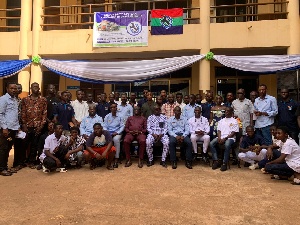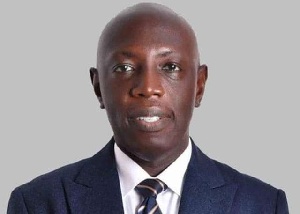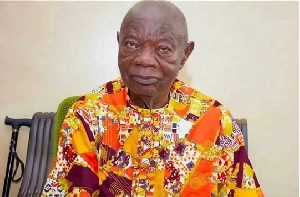- Home - News
- Elections 2024
- News Archive
- Crime & Punishment
- Politics
- Regional
- Editorial
- Health
- Ghanaians Abroad
- Tabloid
- Africa
- Religion
- Photo Archives
- Press Release
General News of Monday, 26 May 2025
Source: www.ghanawebbers.com
Heavy-duty artisans seeks partnerships to regulate the informal operations
The Heavy Duty Artisan Association of Ghana (GHAART) recently celebrated its first anniversary. They collaborated with the Suame Technical Institute for this event. The celebration highlighted their impactful work in the heavy-duty mechanical sector.
GHAART was established to support artisans in the heavy-duty industry. It aims to encourage more youth to join this sector.
Suleman Abdul-Raman, GHAART's National President, spoke about their efforts. He mentioned that they are developing policies for the informal sector. Currently, this sector lacks proper regulation.
“We want to help the government regulate it,” he said. “Without regulation, artisans struggle to operate effectively.”
Abdul-Raman also noted GHAART's partnerships with well-known companies. These collaborations provide practical training opportunities for students.
“Popular companies train students and give them hands-on experience,” he asserted.
He urged the government to focus on local manufacturing. He emphasized supporting “Made in Ghana” goods and the Kantanka brand.
Charles Osei, a lecturer at Kumasi Technical Institute (KTI), chaired the event. He stressed that skills learned in school are vital for work.
Osei highlighted GHAART’s goal of working closely with mechanics at Suame Magazine. This partnership helps students gain practical skills.
“The association aligns closely with technical education,” he explained. “We send students for attachments at local workshops.”
He added that artisans teach students essential skills and provide real industry experience.
Jerry Aflabo, Ashanti Regional Manager of DVLA, was the guest speaker. He discussed vehicle safety's importance for national development.
“What you do is critical,” he said. “Ensure repairs are done correctly to prevent accidents.”
Aflabo advised mechanics to tighten bolts properly on towed vehicles. He also mentioned standards for imported buses and seat spacing issues.
“Consult us for accurate measurements before registration,” he added.
Ernestina Owusu, a female mechanic, shared her journey into mechanics. Despite family discouragement, she pursued her passion and now repairs heavy machines.
“I believe other women can do this too,” she stated confidently.
George Cooper Cofie, a lubricant engineer, warned about used oils' environmental risks. He cautioned against pouring them on the ground as rainwater carries them into water sources.
Cofie advised mechanics to collect used oils properly and sell them for recycling. He urged drivers to use the correct oil grade for their vehicles as well.
“Many modern cars need synthetic oils; many still use mineral oils,” he noted.
Overall, GHAART aims to grow the heavy-duty sector and encourages industry members to support national development.











